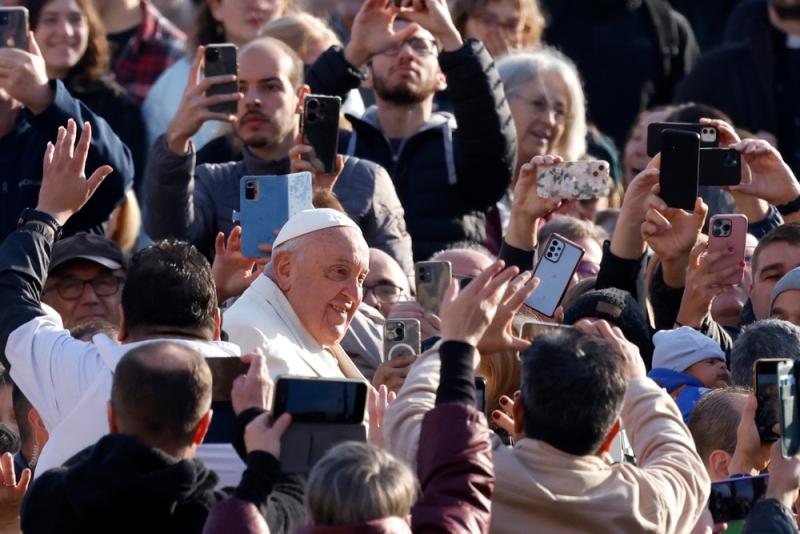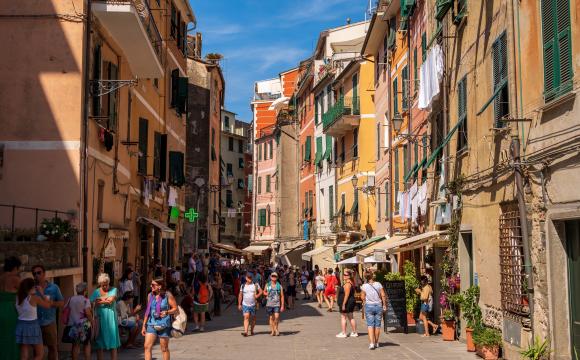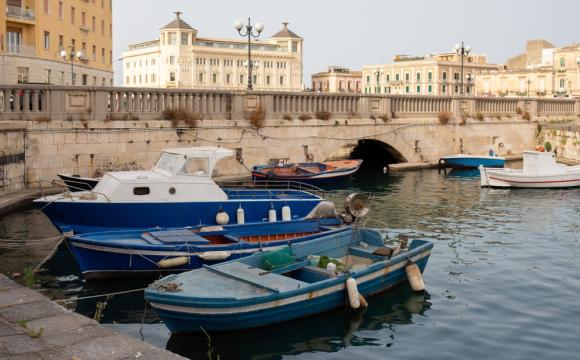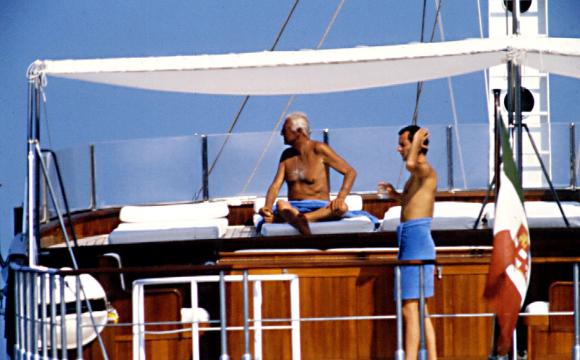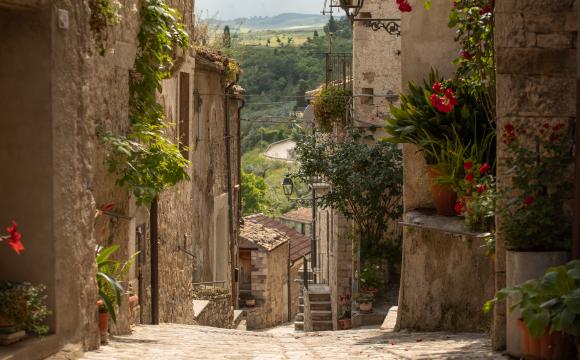At the Holy See Press Office just off St. Peter’s Square, flocks of Italian and foreign correspondents anxiously await the latest news on the health of Pope Francis, 88, who was admitted to Rome’s Gemelli Hospital on February 14.
The popular pontiff was diagnosed with pneumonia in both lungs after initially being treated for bronchitis due to breathing difficulties.
Since the news broke, much of the world’s population has been keeping close watch on Rome. Thousands of Catholic pilgrims, already in the city for the Jubilee year, have gathered in St. Peter’s Square and outside the hospital to pray for the Argentine pontiff.
But the pope’s precarious condition has been particularly top of mind for the Vaticanisti (journalists, media and experts covering the Vatican and the Roman Catholic Church).
Vatican City’s press office normally houses a handful of rigorously vetted reporters but has swelled to standing room only as breaking news reporters await twice-daily medical bulletins delivered by the Vatican’s spokesperson Matteo Bruni. Other card-carrying Vaticanisti prefer to work from their outlets’ offices, the Foreign Press Association headquarters in Palazzo Grazioli, or even remotely until being on-site seems absolutely essential. This largely depends on the nature of their news roles and needs.
But whether they work for a daily or weekly newspaper, news wire or television service, most are “waiting around for that ‘ping’ in the middle of the night,” John Hooper, the Italy and Vatican correspondent for The Economist, told Italy Magazine.
There have been murmurings about papal succession for years, given Pope Francis’ age and failing health. Some have speculated about the possibility of another resignation after 2013, when Francis’ predecessor Benedict stepped down from what is normally a lifetime role, citing health reasons.
Pope Francis, at this writing, is in stable condition after what the Vatican described as a “tranquil night.” But if things should take a turn for the worse, the church has had centuries of preparation to navigate the transition. Upon the death of a pope — following a funeral and a roughly two- to three-week mourning period — the Vatican convenes a conclave to elect a successor as the new Bishop of Rome. (The secretive rite, which takes place behind closed doors in the Sistine Chapel, was the subject of the 2024 film Conclave, which on Sunday won the Oscar for Best Adapted Screenplay.)
None of the current commotion feels particularly new for veteran Vaticanista Sabina Castelfranco. A journalist and producer for the American broadcaster CBS News who works across radio and television, she has covered three papacies and collaborated with all major American, British and Australian networks over the course of her career. After graduating from the London School of Economics, Castelfranco got her start at Vatican Radio but has been a producer for CBS’ 60 Minutes and Sunday Morning since 1998.
Castelfranco recently spoke with Italy Magazine about what it’s like to be on “pope watch” around the clock.
This interview has been lightly edited for length and clarity.
Dispatches from “pope watch” with Sabina Castelfranco
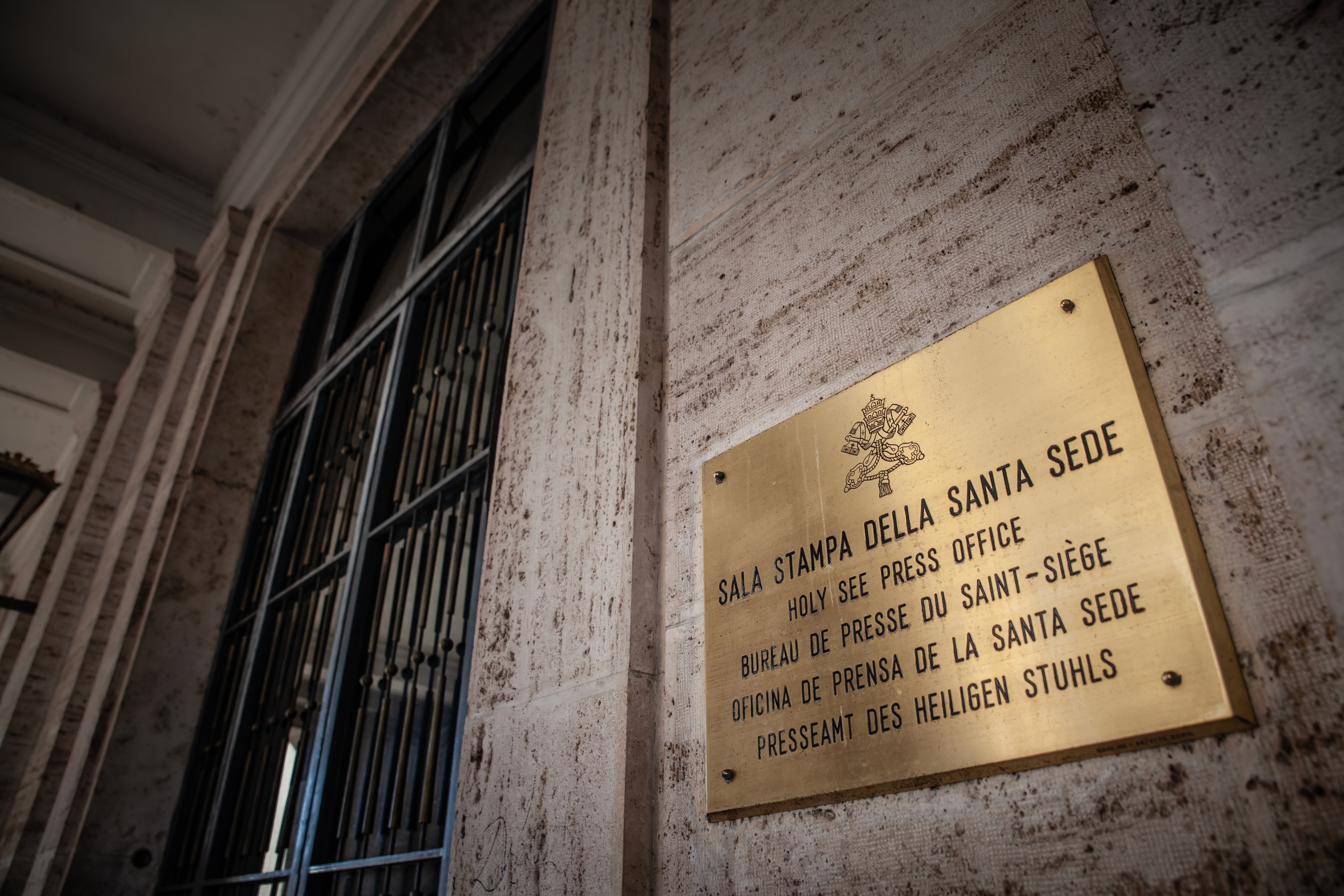
Toni DeBella: Thanks for talking with me, Sabina. This all came about because I was thinking about how no one really talks about what it’s like for people like yourself to be watching the pope [when he’s in critical condition].
Sabina Castelfranco: This isn’t my first time, either. This may be my last time doing “pope watch,” but I certainly did “pope watch” for Pope John Paul II and Pope Benedict. But then Pope Benedict decided to resign, which turned into….
TD: …a whole different thing.
SC: Yes. But we still had a conclave in that case as well. And then, well, now [I’m covering] Pope Francis, obviously. But with Benedict, it was a little different because he was no longer pope by the time he died. So it wasn’t such a big concern for the world at that point. But it was still big news.
And because [Benedict’s death] happened over the Christmas holiday period, a lot of people were on vacation. So it was reported in a very, very different way compared to, obviously, the death of Pope John Paul II, which was huge because he had been pope for so many years and implemented such significant changes on the world scene. Then Pope Benedict was a very, very different man, a theologian, very, very different from the charismatic John Paul, too. Then there was the election of Pope Francis, which I reported for CBS from St. Peter’s Square.
TD: You have so much experience with this.
SC: I have to tell you, I was still a very young journalist during Pope John Paul II’s tenure. I had to remind myself to really keep my mobile phone on day and night because anything could happen anytime. I was literally with my phone right next to my bed, and I wasn’t switching it off.
TD: I have the sense that life pretty much stops for people who are covering Francis’ health right now. You can’t really plan anything and you’re on hold. What’s your experience with this aspect of it?
SC: Well, certainly, at the moment, the pope medical health update, the bulletin at 7pm, is the one that is most interesting for us all because it basically lays out how the day has been. It's also at a time that’s perfect for someone like me, who reports for the United States. There’s no way I’m going out early any evening.
First, we watch what the medical bulletin says, and then you plan your evening if you really want to go out. That’s the situation now. But I have to tell you something. I had a planned trip to the US on February 15, and I had purchased my ticket, and then the pope was taken to the hospital on February 14. My flight was the following morning at 10am. I was like, oh, my God, what am I going to do? But anyway, I decided to go, and I flew to New York and I prayed all the way there.
TD: Apparently it worked!
SC: It certainly did. I continued to pray for the following days. I was going first for the 60th birthday of a friend of mine, and then I went into the office in New York, and I walked in and my boss said to me, are you not in the wrong country? (Laughs)
TD: “What are you doing here?” Obviously.
SC: I said, yeah, but I’m an optimist and believe he’s going to be just fine until I get back. And so it was. But obviously, I was watching everything very, very carefully and ready to get on a plane immediately.
TD: Well, luckily, we have that ability now, to be able to get to Rome quickly when and if something — I mean, eventually it’s going to happen, of course.
SC: During Pope John Paul II, I was on my own and life was tough because I did everything on my own at the time. We also had another TV correspondent who was always in the Middle East or in Afghanistan or in Iraq. But I literally held the fort on my own during those years. Now we have two TV correspondents in town. We flew in another TV correspondent just in case.
TD: To pick up the slack.
SC: Exactly. We have an entire team of people, some who flew in from our office in London. Now it’s been almost three weeks that the pope has been in the hospital. Some people have started going home because it’s a sit and watch [sort of situation], and just the most important people are staying, or the ones who are here anyway. But yes, you’re quite right. It's difficult for me to make any plans. But I have to make plans because, well, your whole life can’t stop. I have a family and I have kids and I have parents still alive and lots of things happening.
TD: You’re always looking at the phone, though, right? Even for me right now, as someone who doesn’t work in hard news, it’s been interesting because I pitched the story and now I’m like, oh no, now it’s really time sensitive.
SC: I’m not really in hard news either because basically I do 60 Minutes and Sunday Morning for CBS, which are the two “magazine” shows that we have. Certainly, if something happens, then as you said, it’s all hands on deck. But we have a news correspondent here. I also do radio coverage, and radio basically uses everybody. But I mean, my shows now are magazines. Still, when something like this happens, everybody needs to be around because you can’t just be going away, like, oh, I think I’ll go on vacation. There’s no way. I’d like to go skiing for four days in March — we’ll have to see about that.
TD: You’re on call, basically.
SC: I certainly am on call.
TD: Are you in and out of the press hall at the Vatican?
SC: Yes, I’ve had permanent accreditation since I was in my 20s. I’m now 58. I know [Director of the Holy See Press Office] Matteo Bruni — suddenly I’ve known him for a very long time. I worked at Vatican Radio and started there when I was maybe 23 or 24, so I know people in the Vatican. I basically did the news in English for about seven years, [then] I started working for CBS. I know the people at the Vatican press hall very well. I also normally would be going to hear whatever they have to say. I haven’t yet this year, only because I got back from New York last Friday and have been in Naples, not back to Rome yet. I haven’t considered it necessary to be on site yet.
TD: You’re still touch and go, but you’re tracking it and you'll decide what you need to do.
SC: Right. I am not on site yet, but will be when it becomes necessary.
TD: And for now it’s a waiting game.
